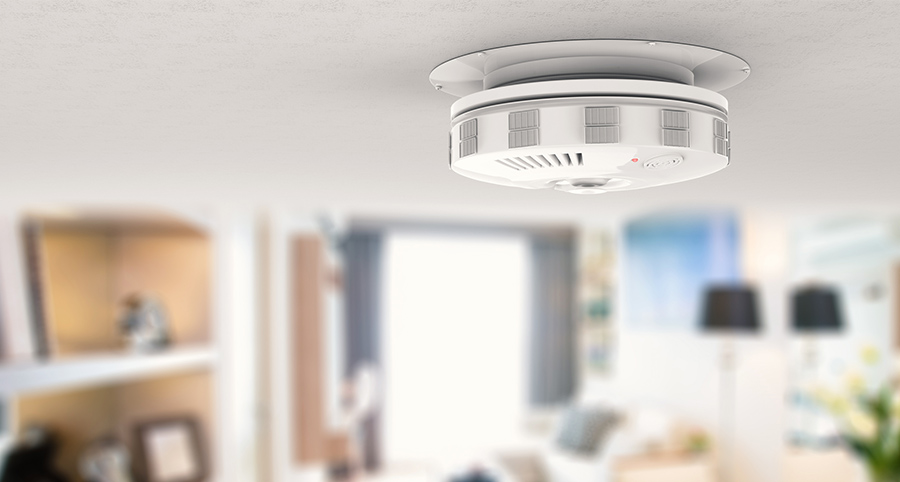Are there differences between regular smoke detectors vs. monitored fire alarms in Helena?

In the Helena smoke detector vs. monitored fire alarm debate, there’s only one victor. Smoke detectors are an essential first step in protecting your house from fire, but they have several limitations. Conversely, monitored fire alarms have more ways to identify an emergency and are able to contact help when disaster strikes. Linking your fire alarms to a comprehensive smart home also brings out many additional benefits that your ordinary smoke detectors could only hope for.
Traditional smoke alarms can only do one thing
Defending against fire is a chief concern for homeowners, and smoke detectors play an essential role in shielding your family. Despite that fact, smoke detectors have some shortcomings. To illustrate, they can only react to smoke, not heat. If there is an emergency in your residence, you may not be cautioned until the smoke ascends to the smoke detector. Even though there are some other significant signals of fire -- including a sudden increase in warmth -- if you don’t have smoke, you will fail to get a triggered smoke detector.
What’s more, smoke detectors only activate if they encounter an adequate amount of smoke. In the event a fire begins slowly, you might not be alerted until the situation is out of hand. Various smoke detectors utilize more than one sensor, meaning they will recognize smoke from both a blazing inferno and smoldering remnants. Whenever they start beeping, it’s required of the resident to notify emergency services after they safely leave the premises.
Monitored fire alarms do much more than ordinary smoke detectors
Although they look like traditional smoke detectors, monitored fire alarms can do much more. If integrated to a total home security system, they will:
- Identify fire with different sensor types: Like a traditional smoke detector, this monitored alarm can trigger from a roaring blaze or smoldering embers. It will sound a high-volume warning if it perceives danger.
- Discover fire due to a rapid rise in heat: A monitored fire alarm can even go off if it notices an uncommon heat surge. Many times, heat comes prior to smoke. Having additional ways to uncover a fire equates to extra ways to protect your loved ones.
- Notifies trained monitoring agents: Fires can occur when you are at your house or not. No matter of the situation, your fire alarms will notify your monitoring specialists, who can swiftly call first responders. When every tick of the clock is critical, it's comforting to have the knowledge that a trained professional is consistently watching over your home.
- Pairs with home automation: Although the primary job of a fire alarm is to recognize dangerous situations and request help, it will also connect to other automated components. For example, a activated alarm could induce your system to engage the exhaust fan to hinder the fire or trigger the lights so you can locate the quickest way out of the house.
Your monitored fire alarms are a key element of a fully equipped smart home
The best way to maximize the functionality of your fire alarms is to connect them with a Vivint home security system. Consult with a Vivint specialist today and find the most suitable smart home for your needs. Place a call to (406) 926-5388 or send in the form below to get started.